A couple of days ago I shared the first part of my visit to the Natural gas museum, which was about rocks and minerals, here. Today I'd like to show you the second part, which is about studies, history, tools and the equipment used during extraction. Come with me as it's going to be interesting.
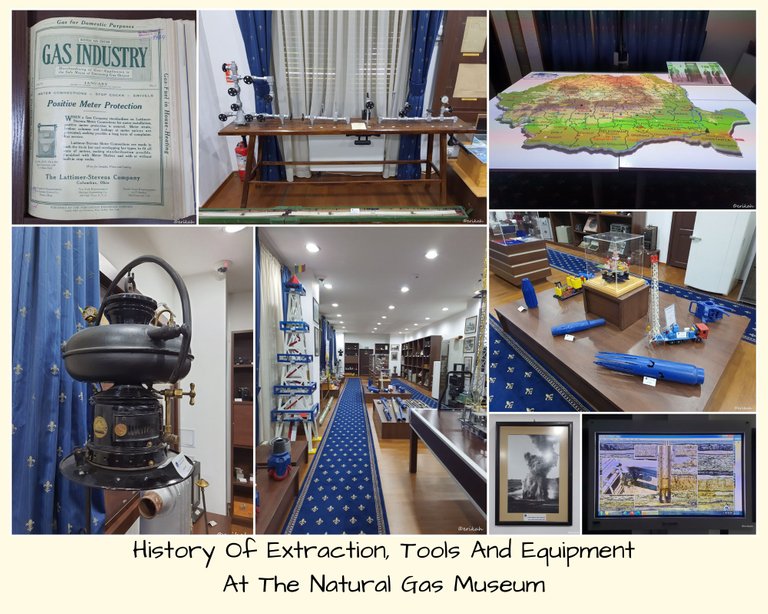
As I said in the first part of my post, the museum is exclusively dedicated to natural gas and related things and most likely is among the few existing in the country. It is in Mediaș, Romania, which is a city known for gas and the gas company headquarter.
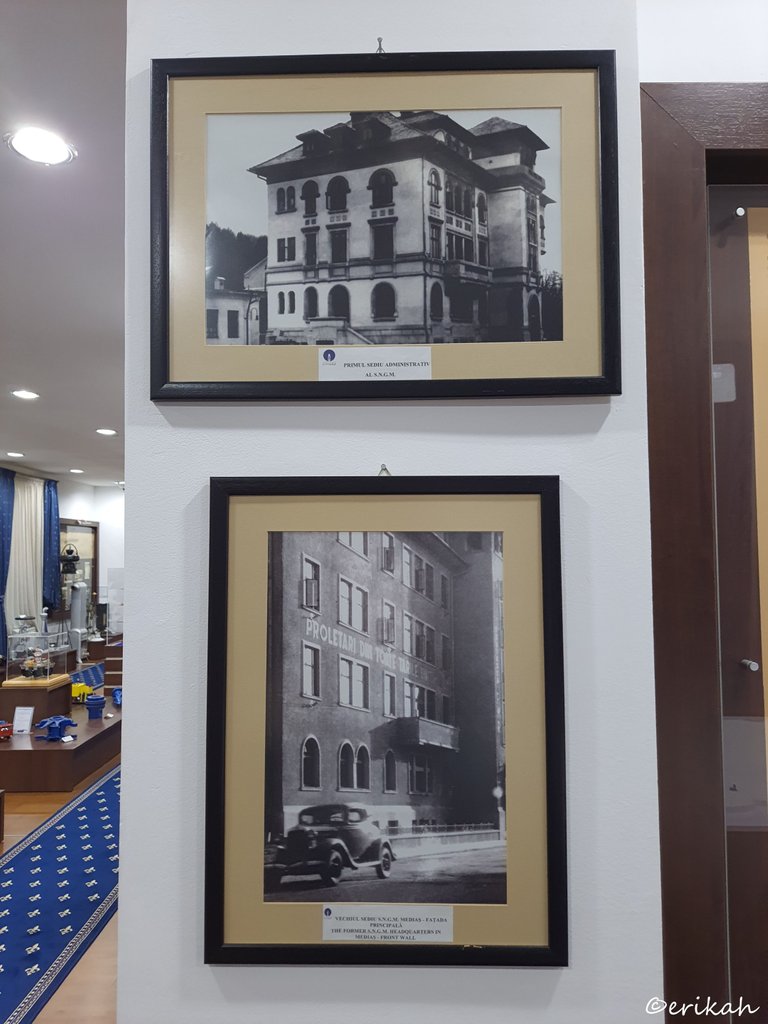
The exhibition covers the history of the industry as well. On the first photo at the top, you can see the first headquarter of the gas company. At the bottom there's the building of the former headquarter in Mediaș. It is quite funny as on the wall there is the most known communist slogan, by Karl Marx and Friedrich Engels, Workers of the world, unite!
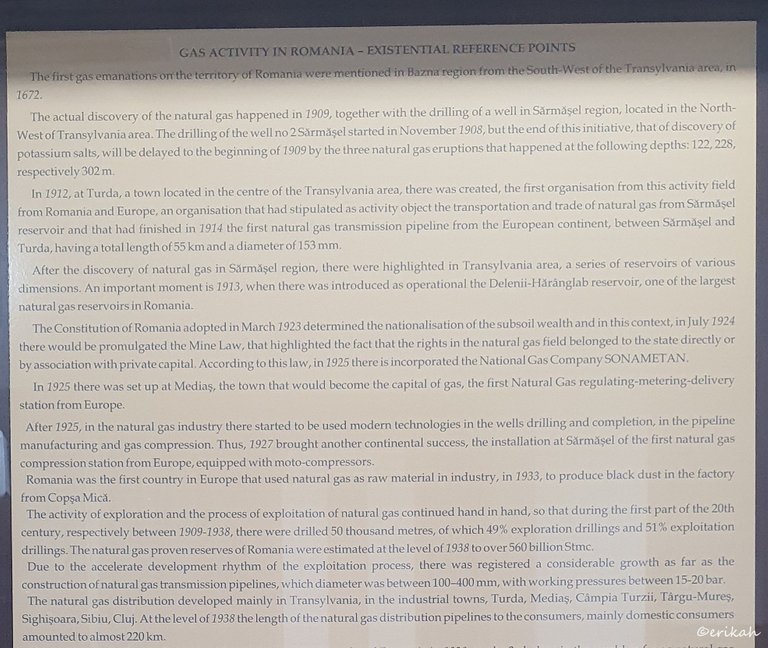
As museums have an educational responsibility as well, there was the history of gas activity in Romania, in English, which I always appreciate.
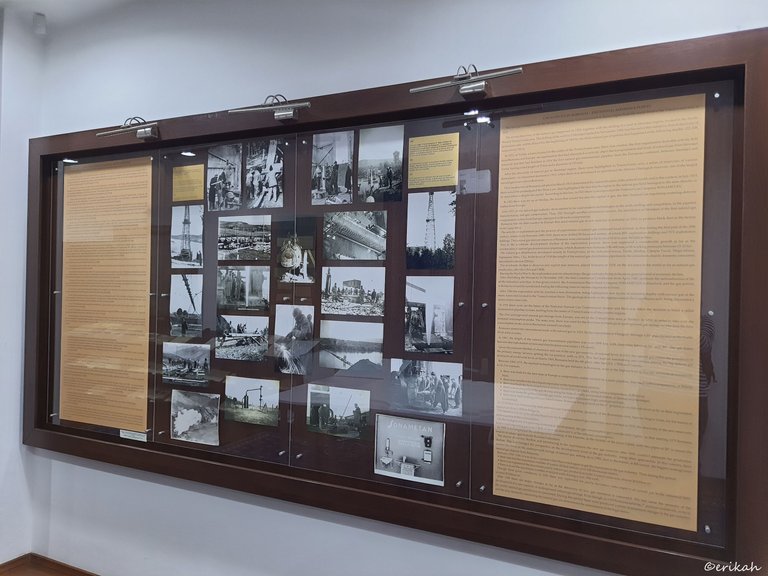
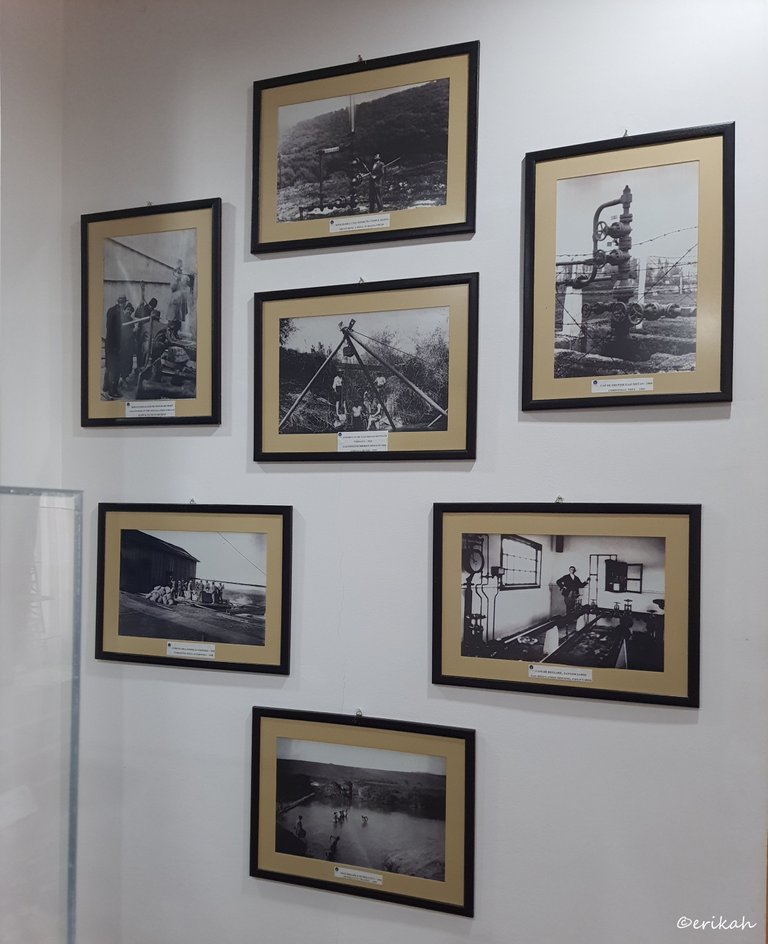
There were old photos about the extraction process as well, which makes one appreciate the evolution of the industry.
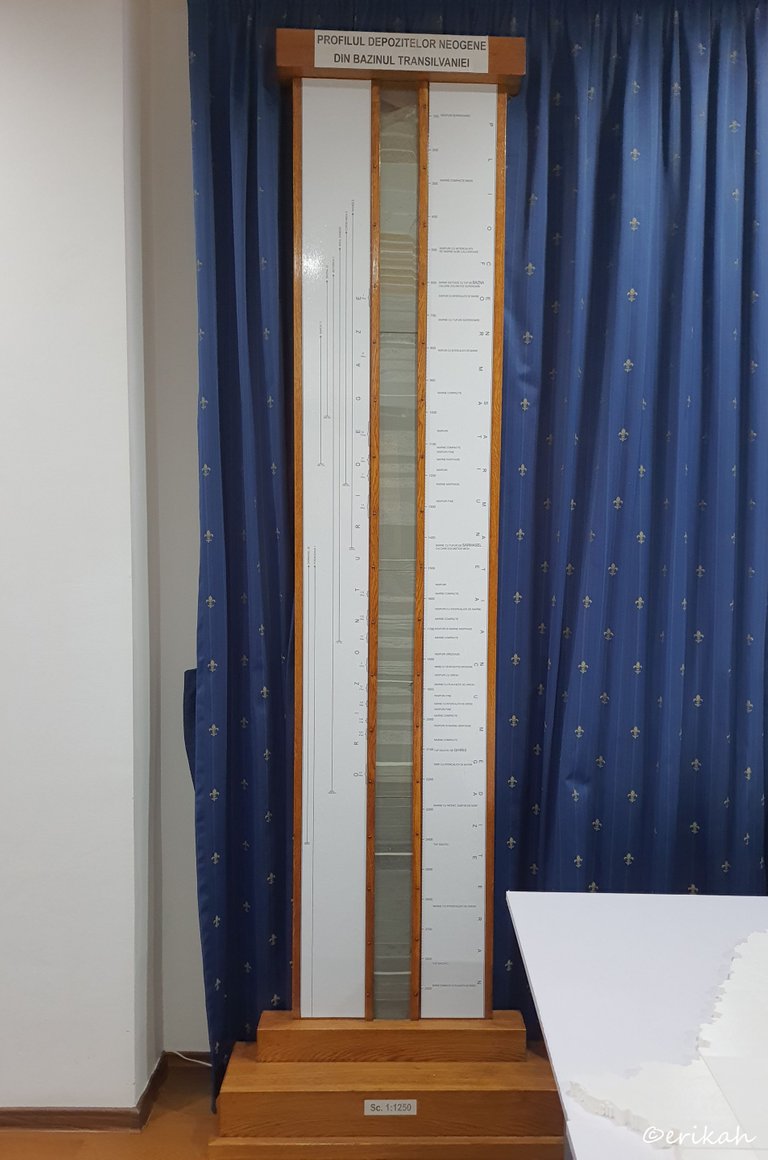
The profile of Neogene deposits in the Transylvania basin. Sounds pretty scientific, maybe it is but if you go closer, you understand what it is.
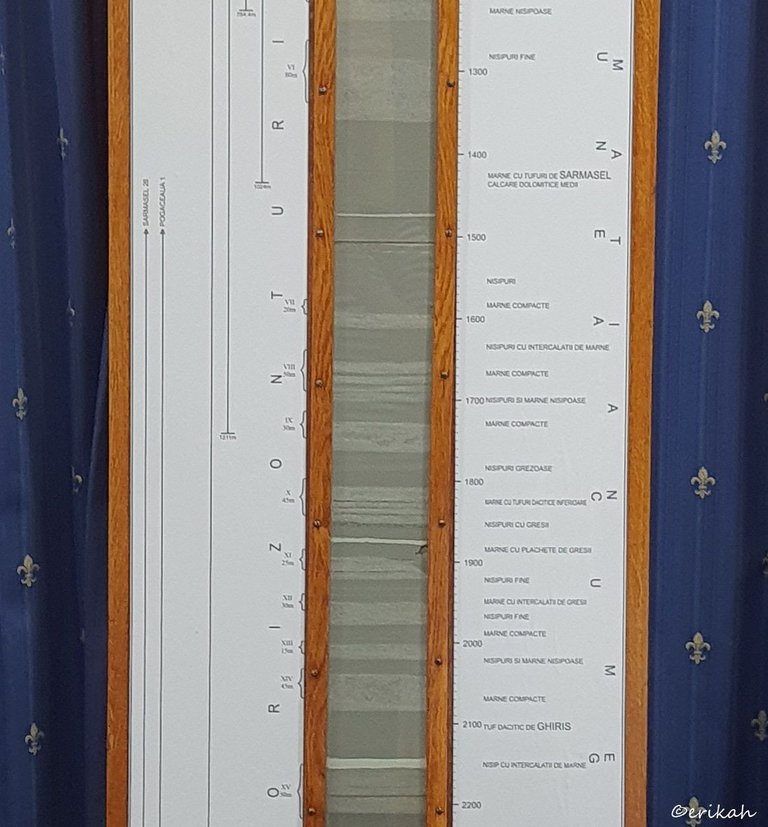
Those gas pools are not found close to the surface, but down at a considerable depth and this is how the soil looks like and what it is made of, till that depth.
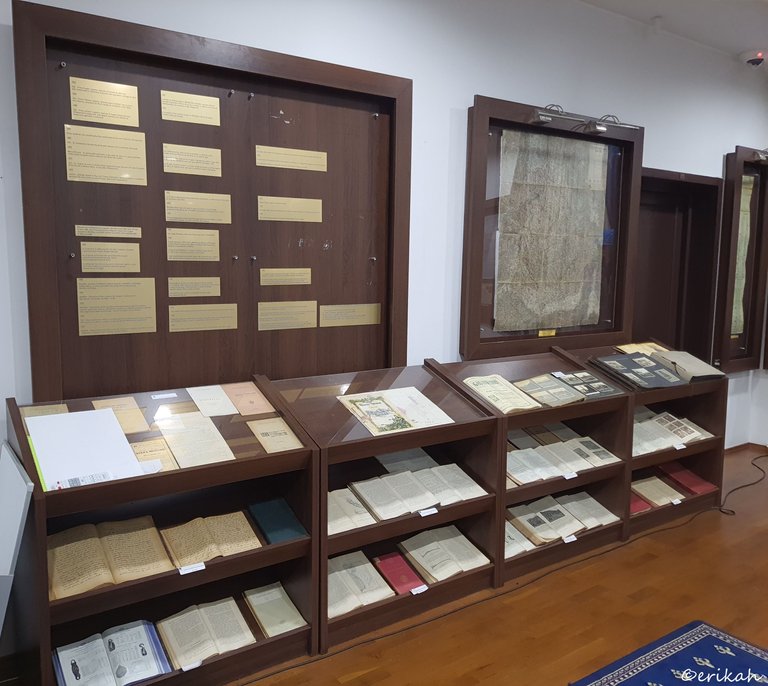
This was what we call real treasure and I'm showing you why.
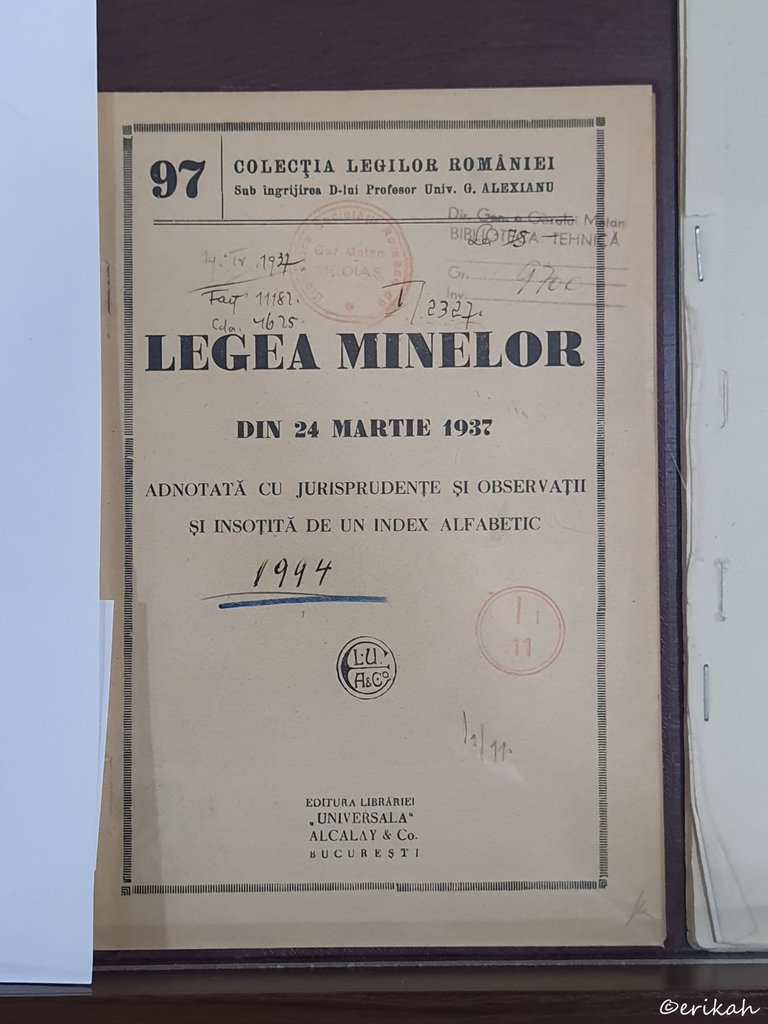
Law of mines, from March 24, 1937.
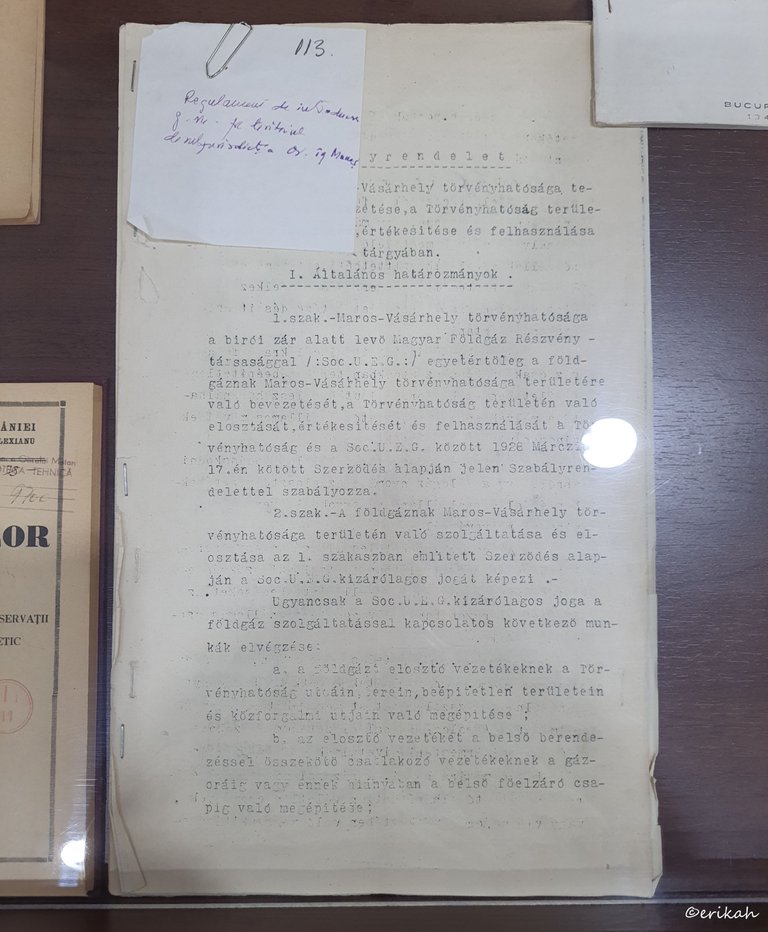
This is where it gets interesting. This is a typed document in Hungarian, from 1928, regarding some implementations by the court of Marosvásárhely. It is in Hungarian, as Transylvania was part of Hungary back then.
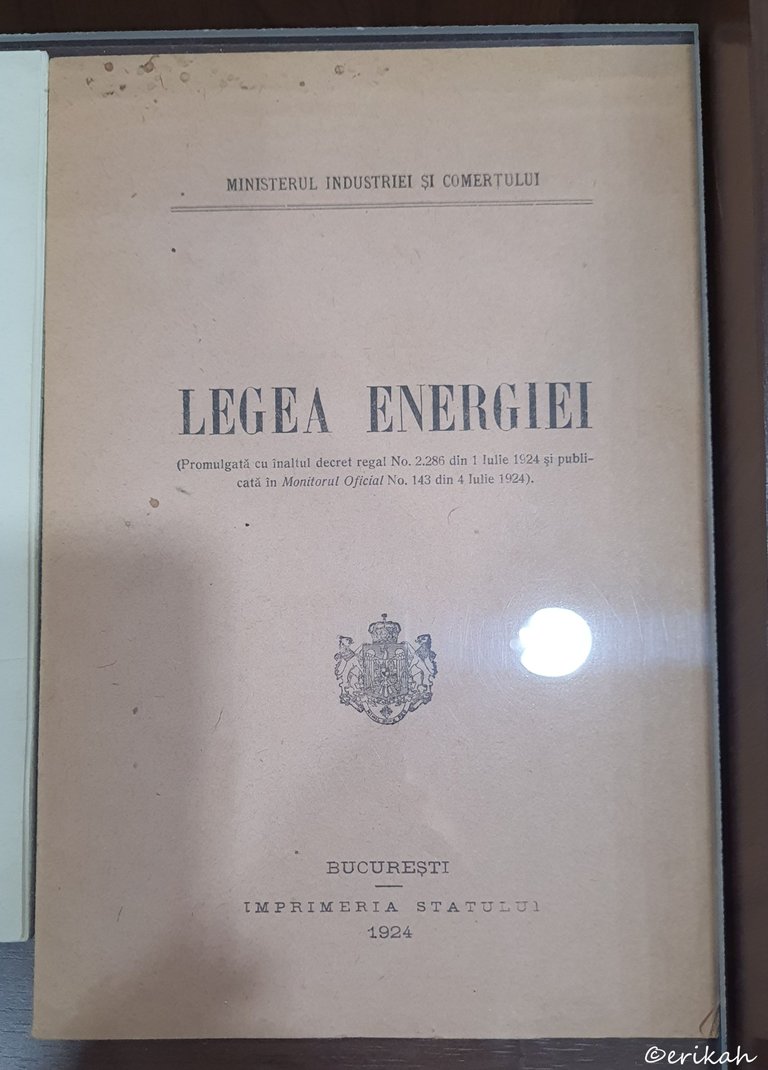
Law of energy, from 1924, issued in Bucharest. This document is almost 100 years old.
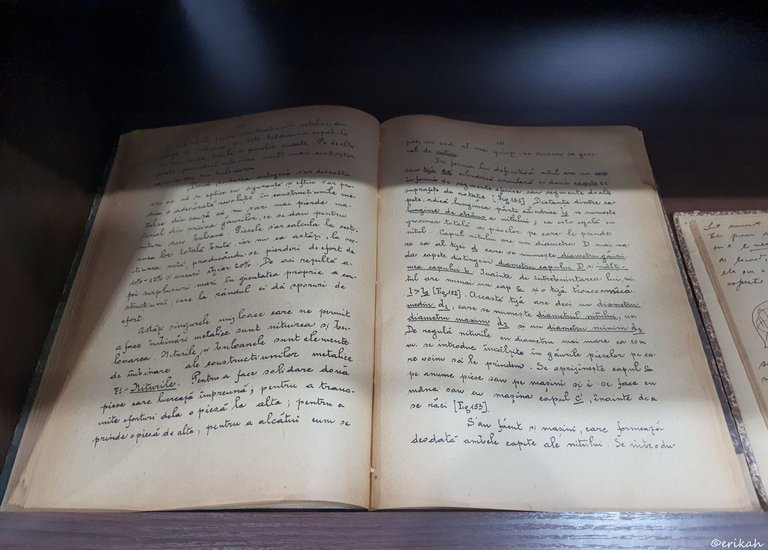
A handwritten technical document (some kind of study as I understand), in Romanian. When I saw these handwritten studies I started to smile. Why? I was thinking, nowadays many students don't even know how to write by hand as most of the study materials are in electronic formats, classes are held online, tests are also held online, no one writes by hand anymore. Back in those days there was writing by hand and typing, but typing came later as the first commercial typewriters were introduced in 1874 . Now imagine yourself studying using a handwritten book.
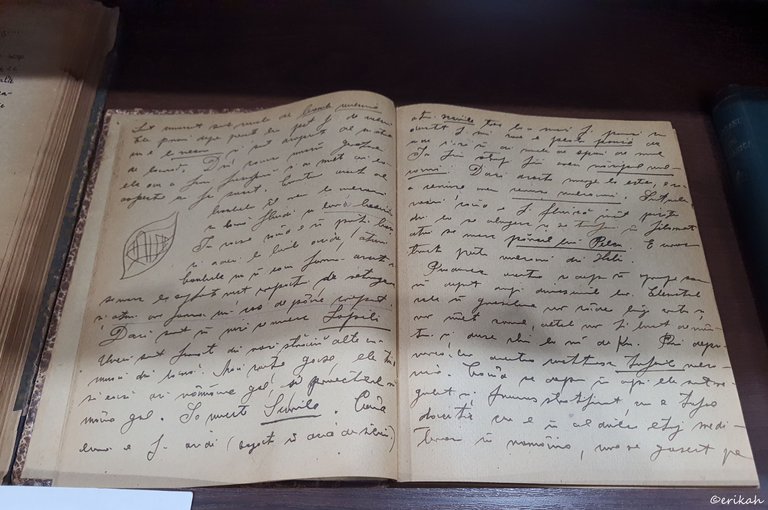
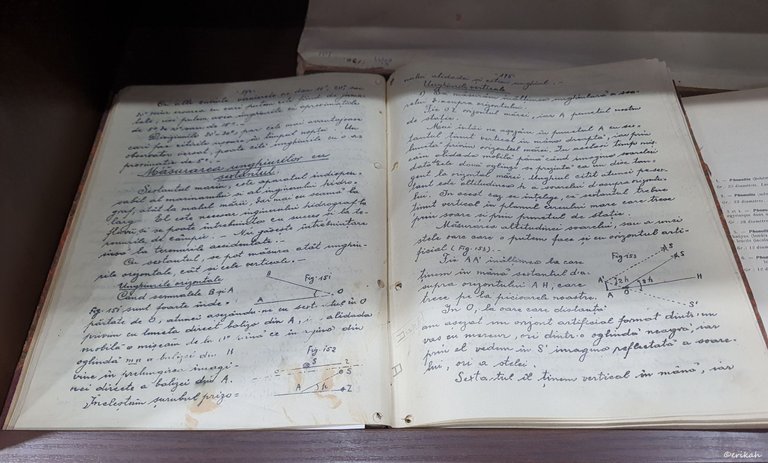
These studies were written between 1910 and 1940.
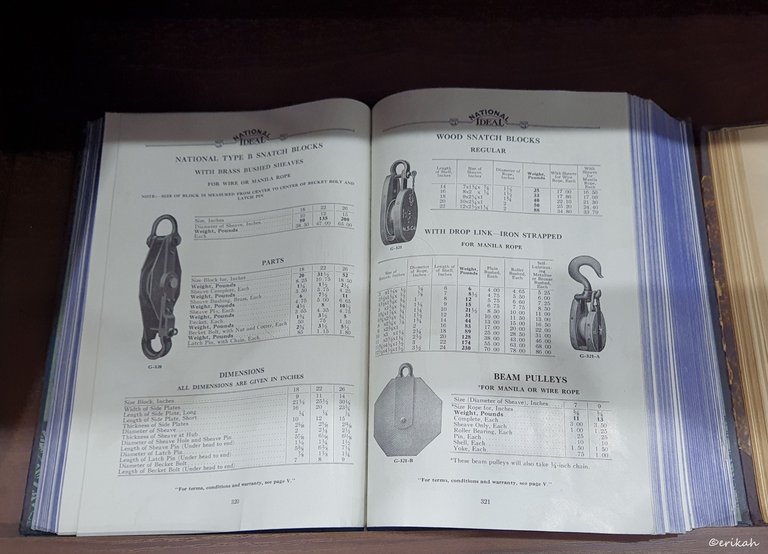
A book about accessories used in the industry, in English this time.
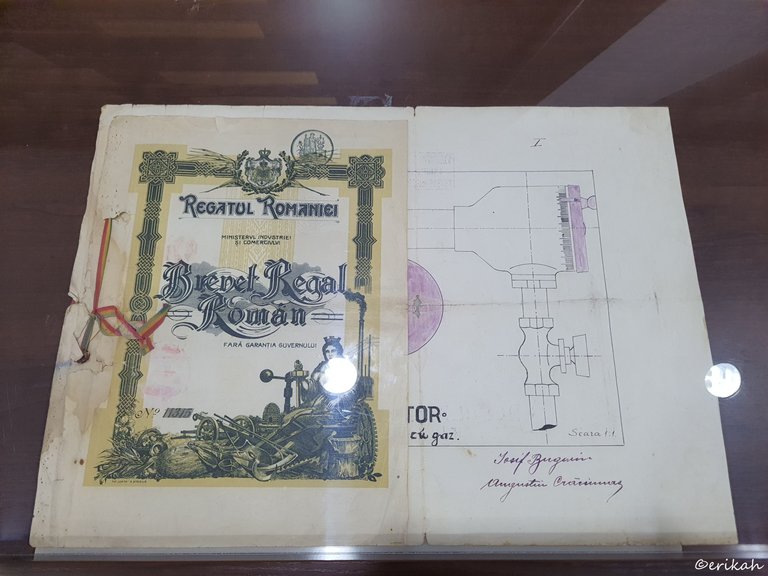
Royal patent issued by the kingdom of Romania.
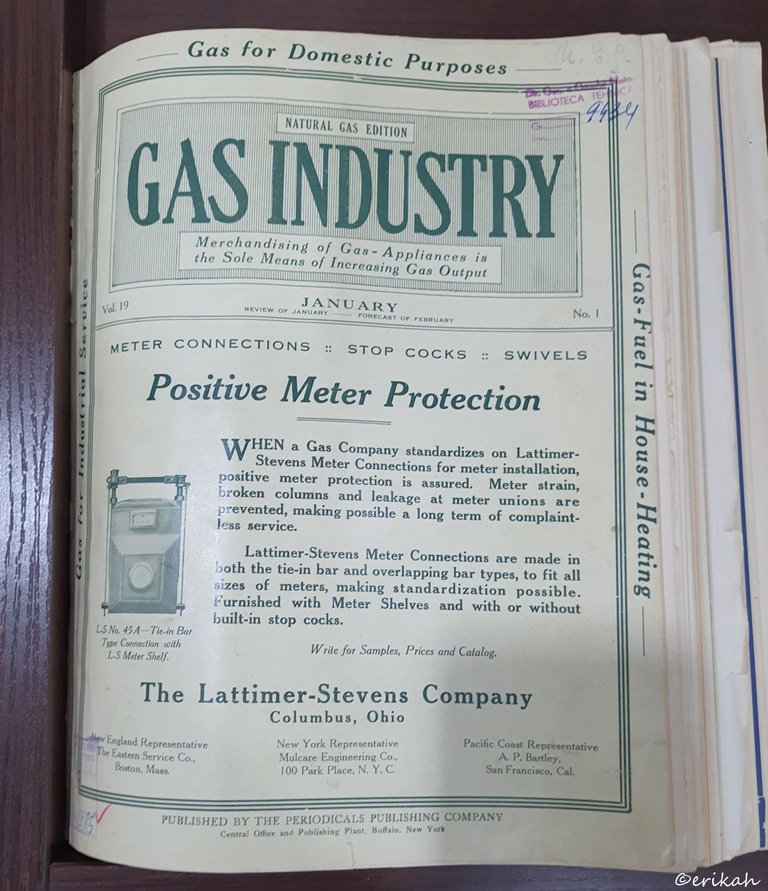
I was looking for the date when this catalog was issued, but could not find any. In any case, it's a very cool one.
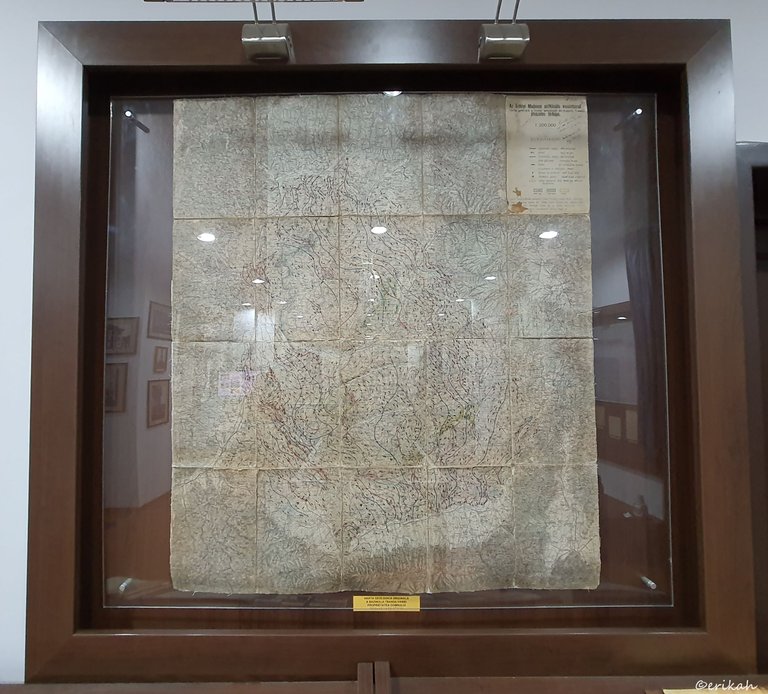
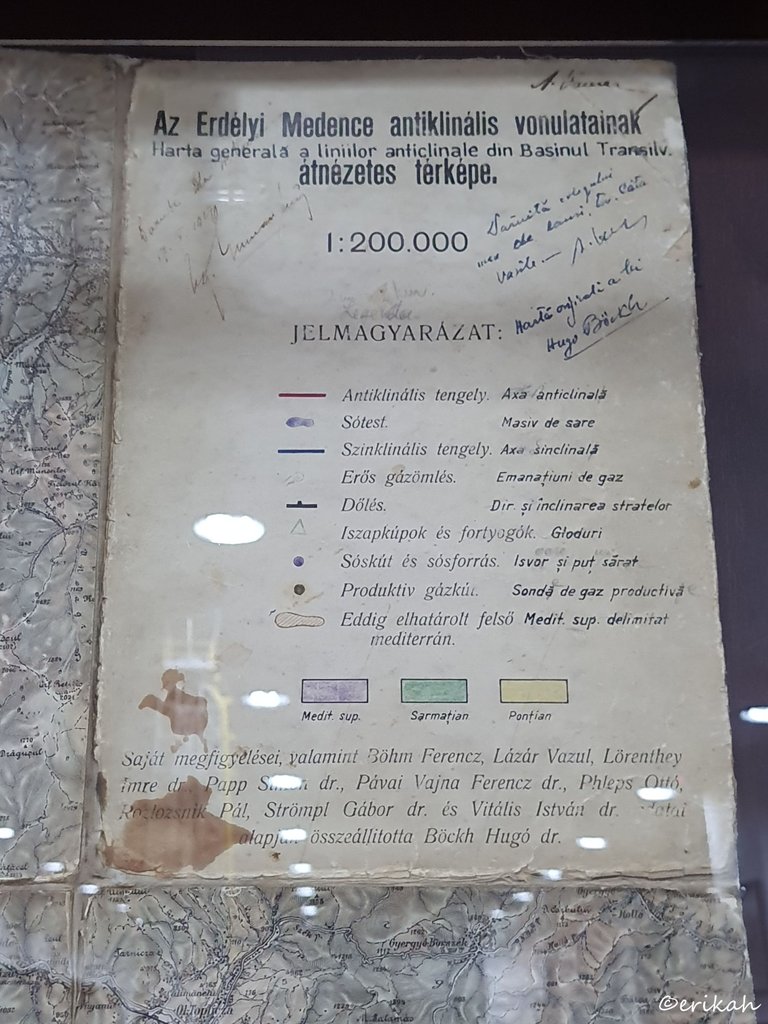
(Overview map of the anticlinal ranges of the Transylvanian basin.)
Original geological map of Transylvania, by Hugo Böckh, geologist. Another Hungarian map, most likely from Hungarian times.
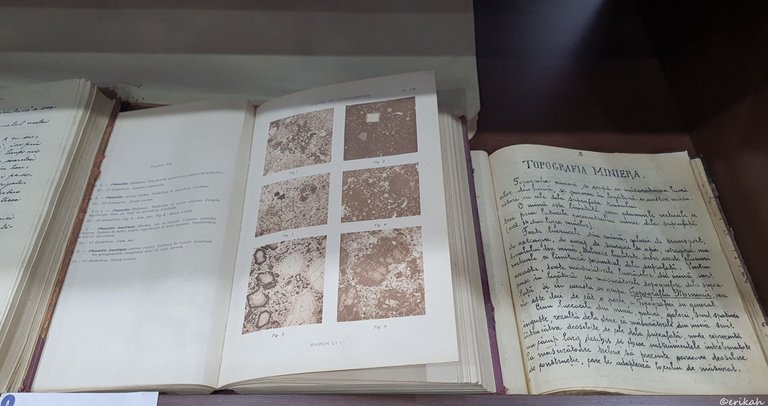
This is an old textbook, issued between 1910 and 1940, about minerals. Now if you've read my first post about the exhibition, you could have seen those colorful minerals, one more beautiful than the other. This book was printed with sepia images, as that was the only option besides black and white in those times. With the technology we have today, printing colored books is not the only option, you can also view almost anything in 3D.
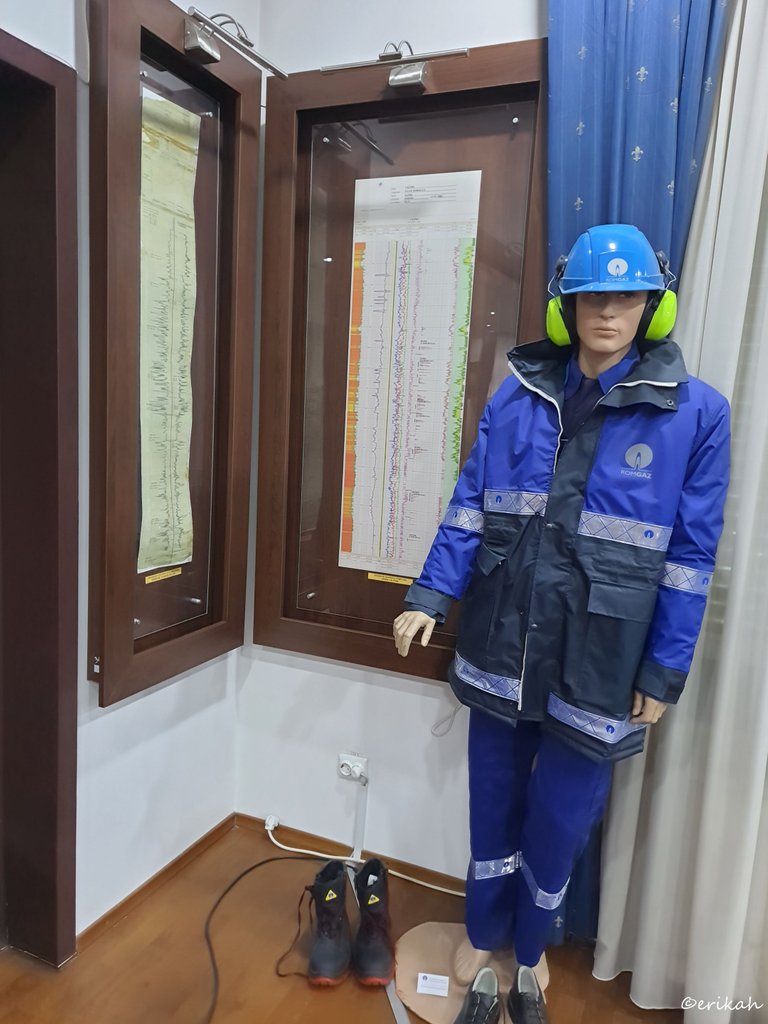
Let's get closer to our days. The mandatory equipment they are using these days and in the back, (with the little knowledge I have, I think) it is most likely the result of drilling.
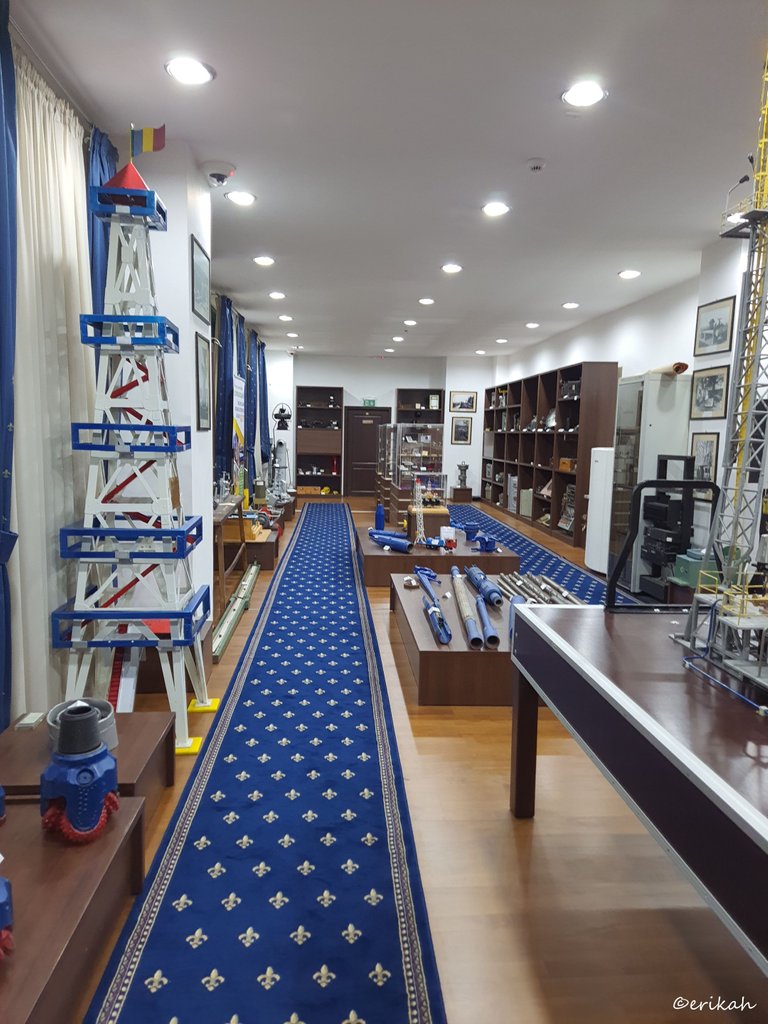
The next room was full of technical equipment and meters of all kinds.
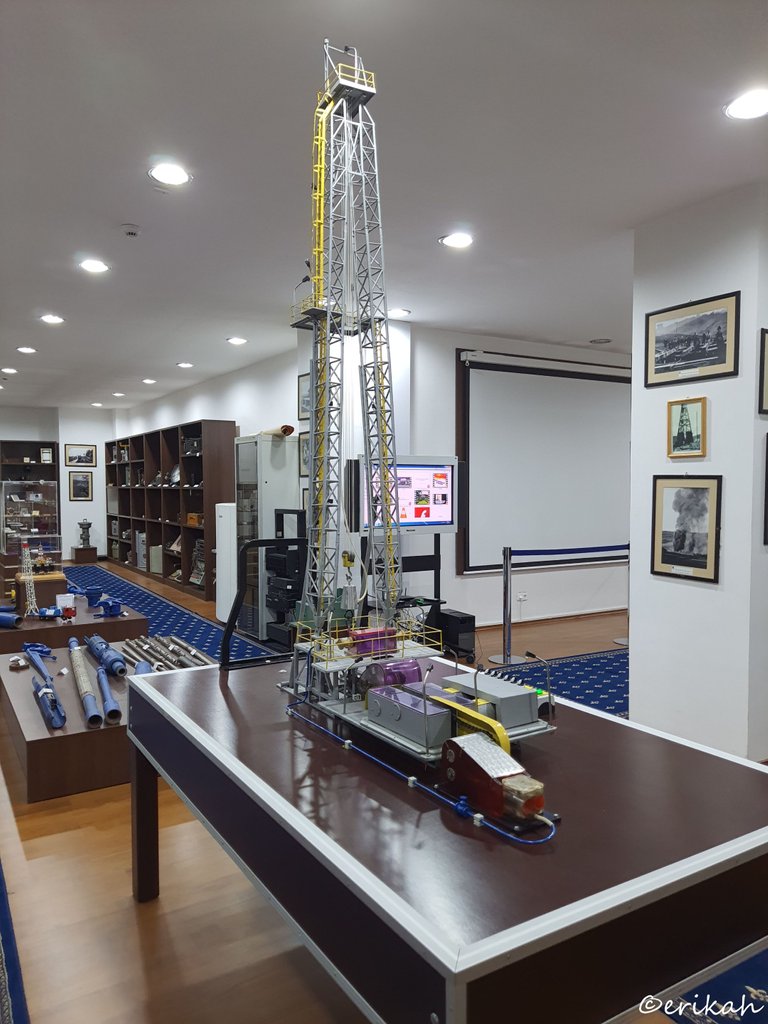
The mock up of a gas probe.
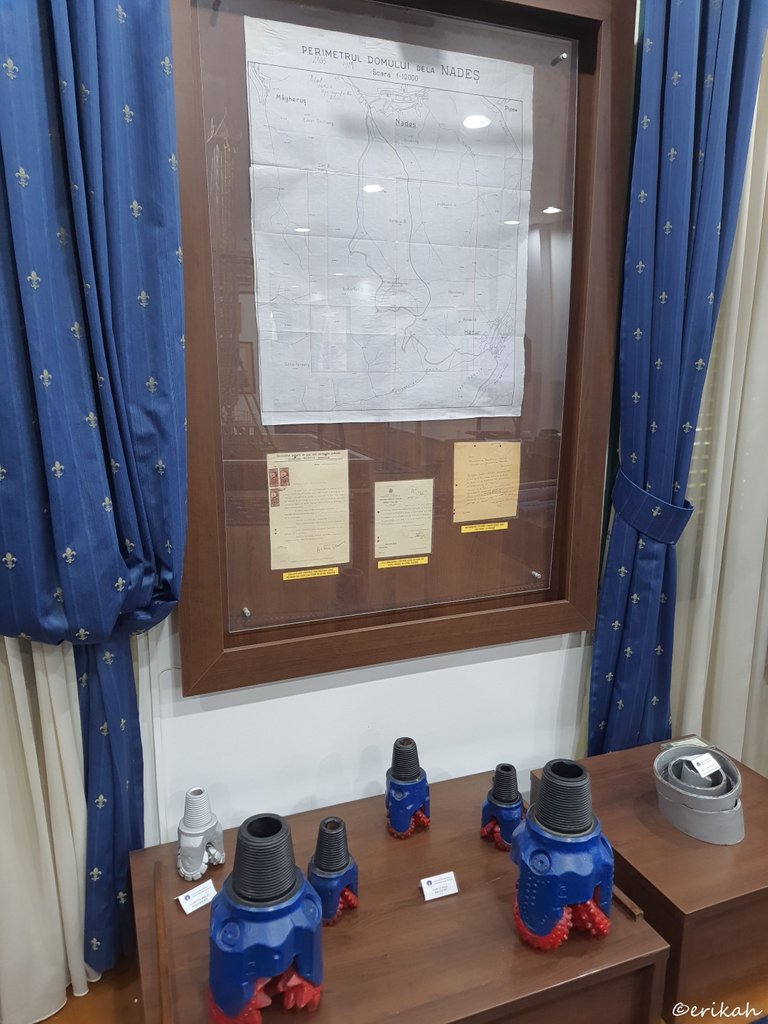
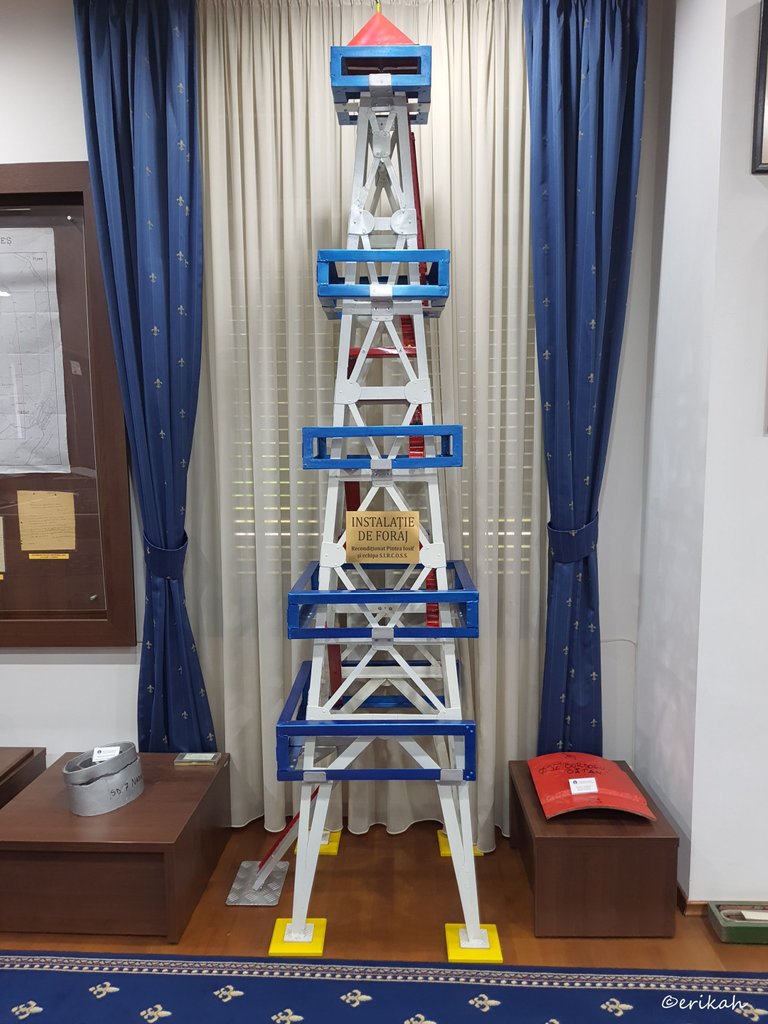
Drilling rig.
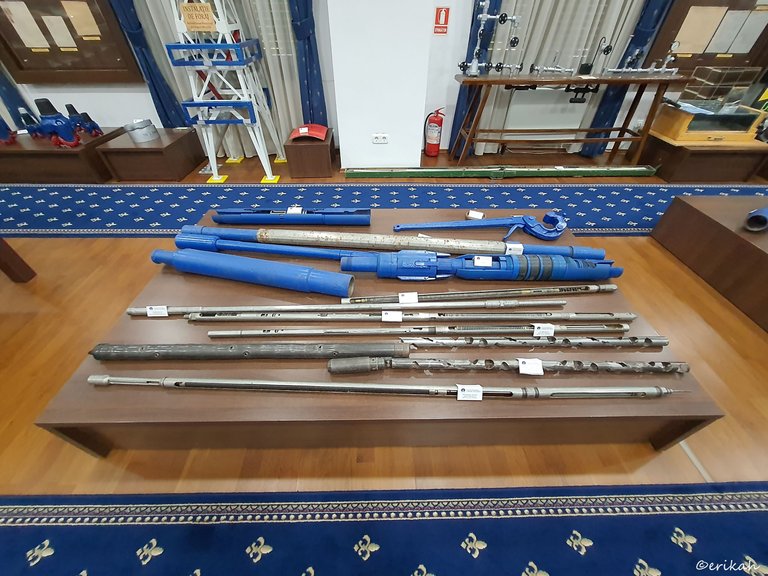
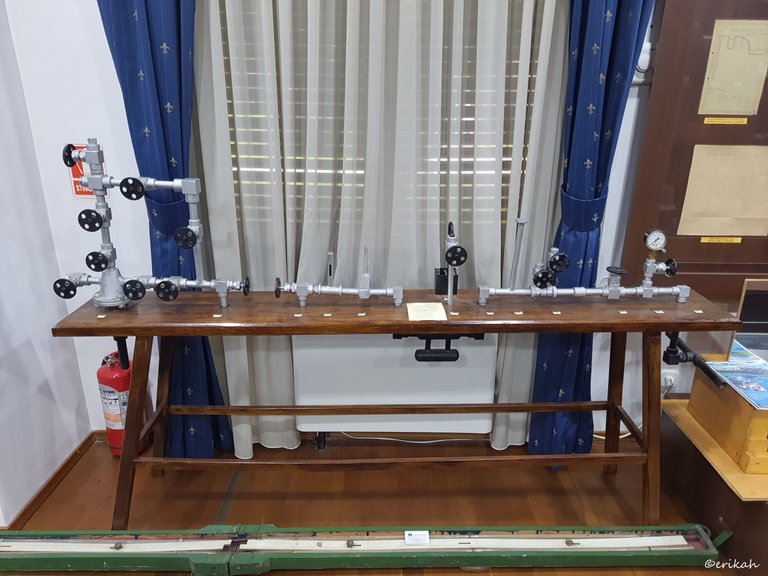
When I got here, I remember I was wondering if there's anyone on Hive, working in the field of natural gas. I don't know anyone, but if you do, let me know.
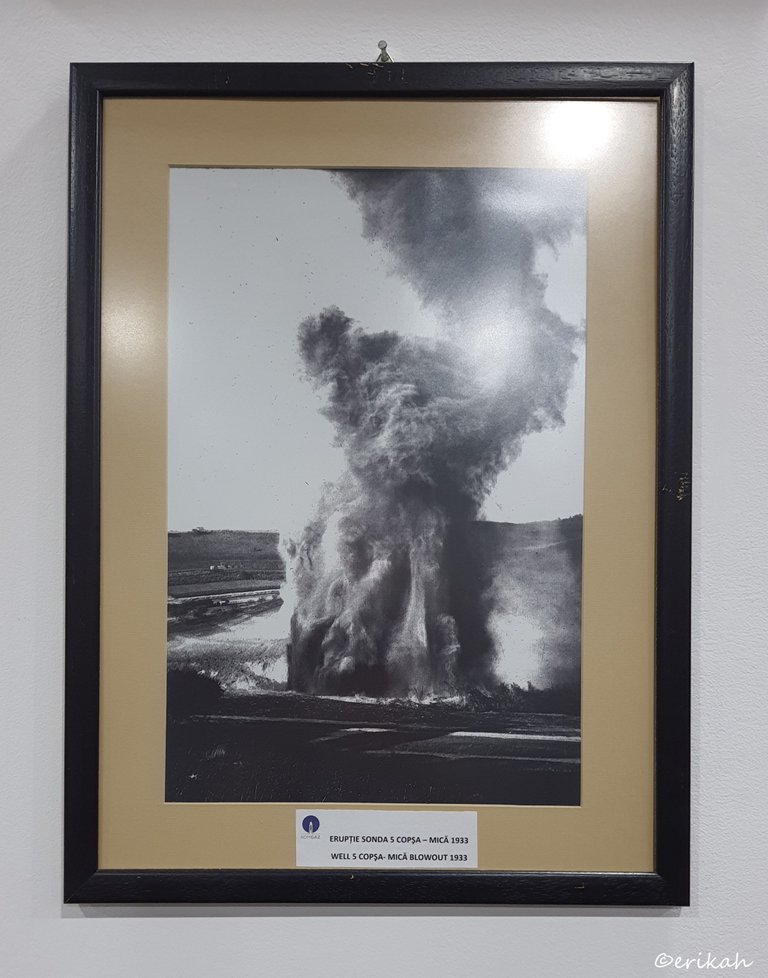
The blowout of a well in 1933.
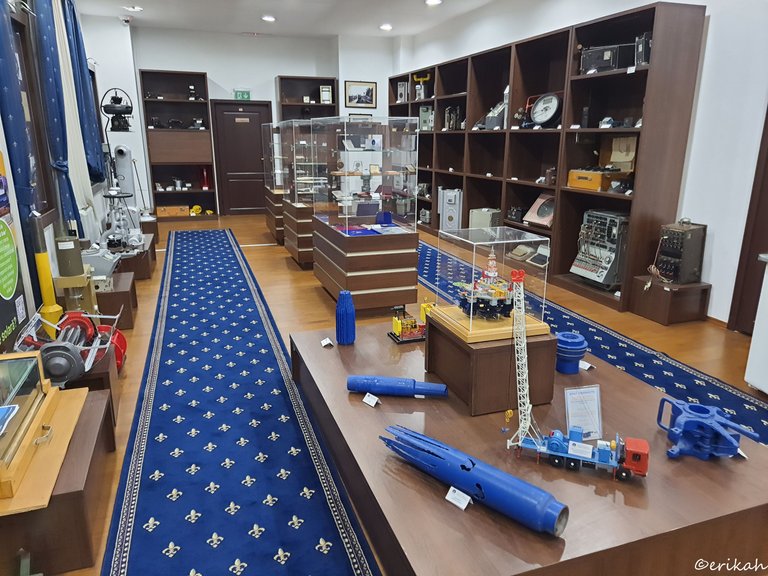
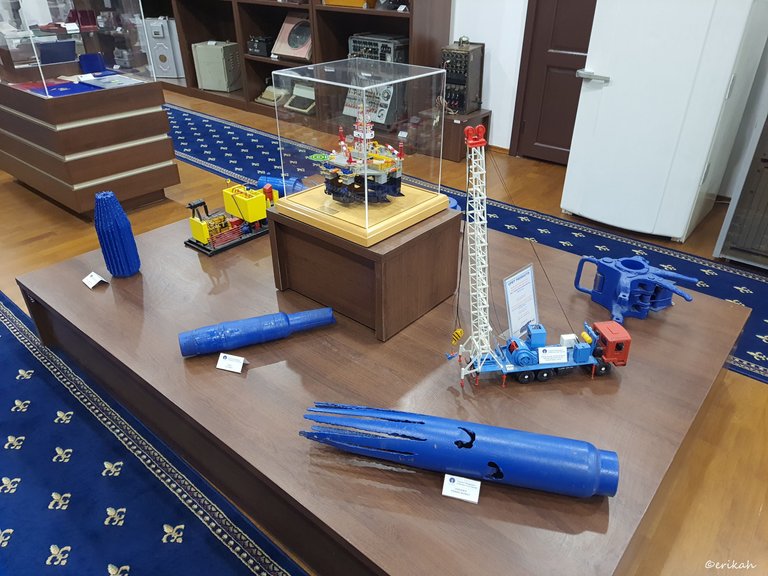
Drill heads.
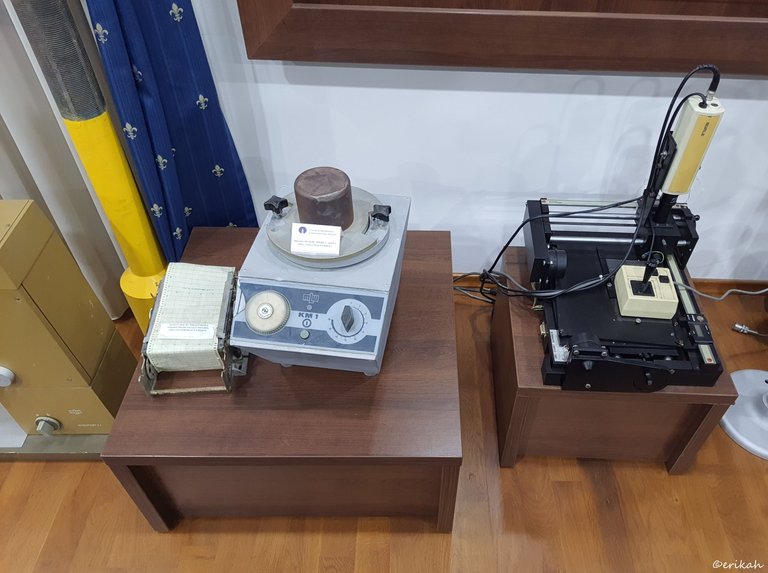
Imagine how much space and how much equipment was needed once to do the job. Today I bet they need half of it in size and what they are working with is 10x more performant.
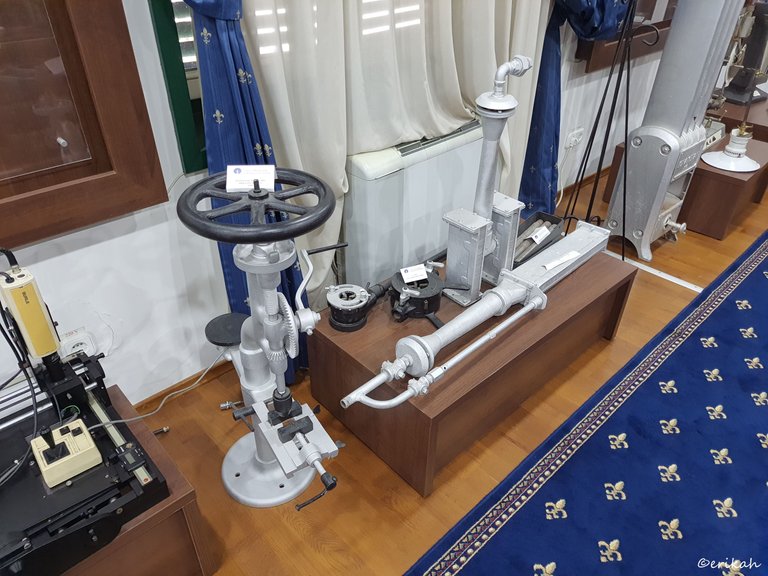
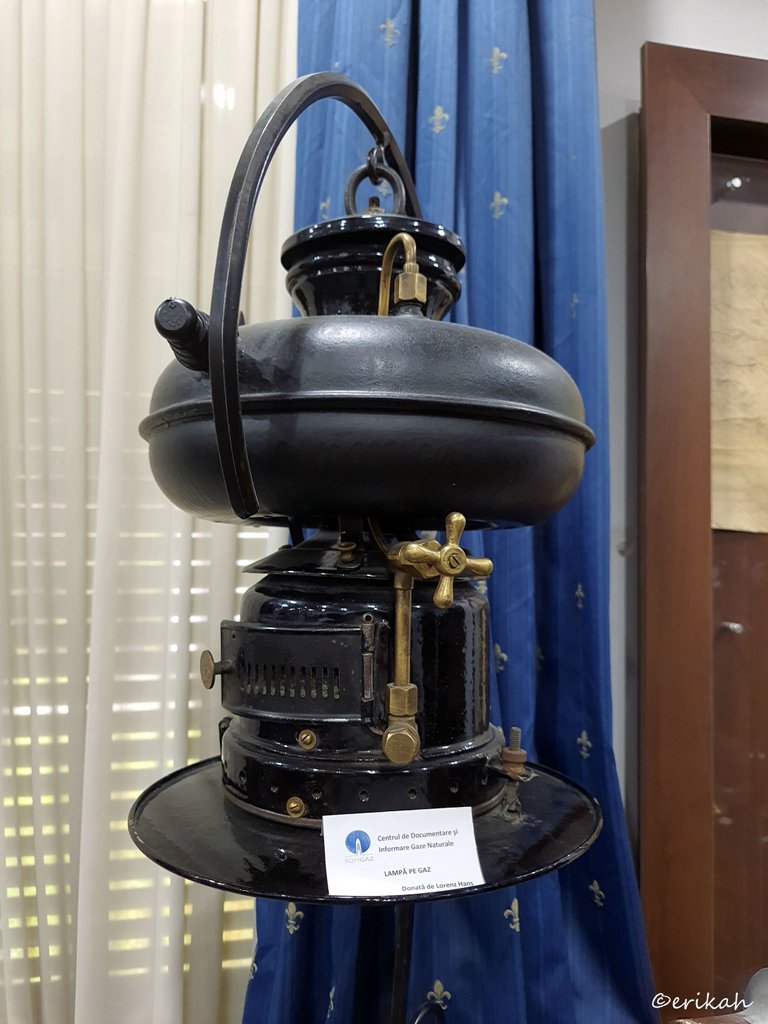
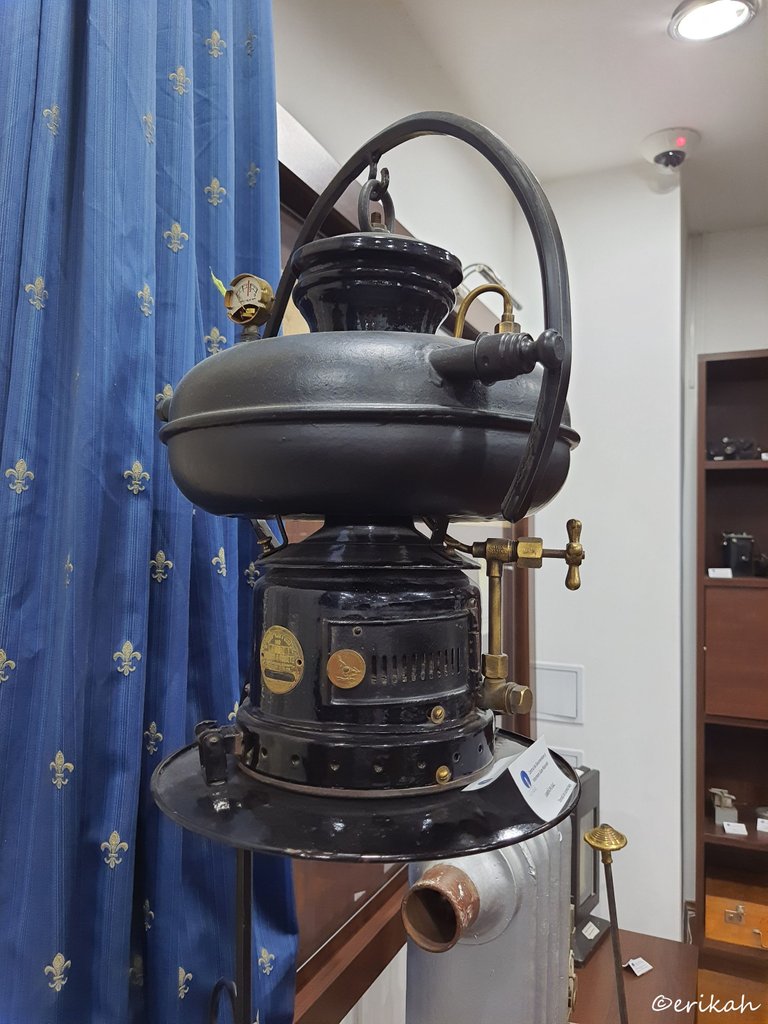
This was a super cool thing, a gas lamp. Have you ever seen one? I haven't, till now. However, looks cool now, but as a light addict, I don't think I would have loved back then. Although, if that's all you have, you don't know there's better. And this is most likely better than candles. Healthier? I don't think so.
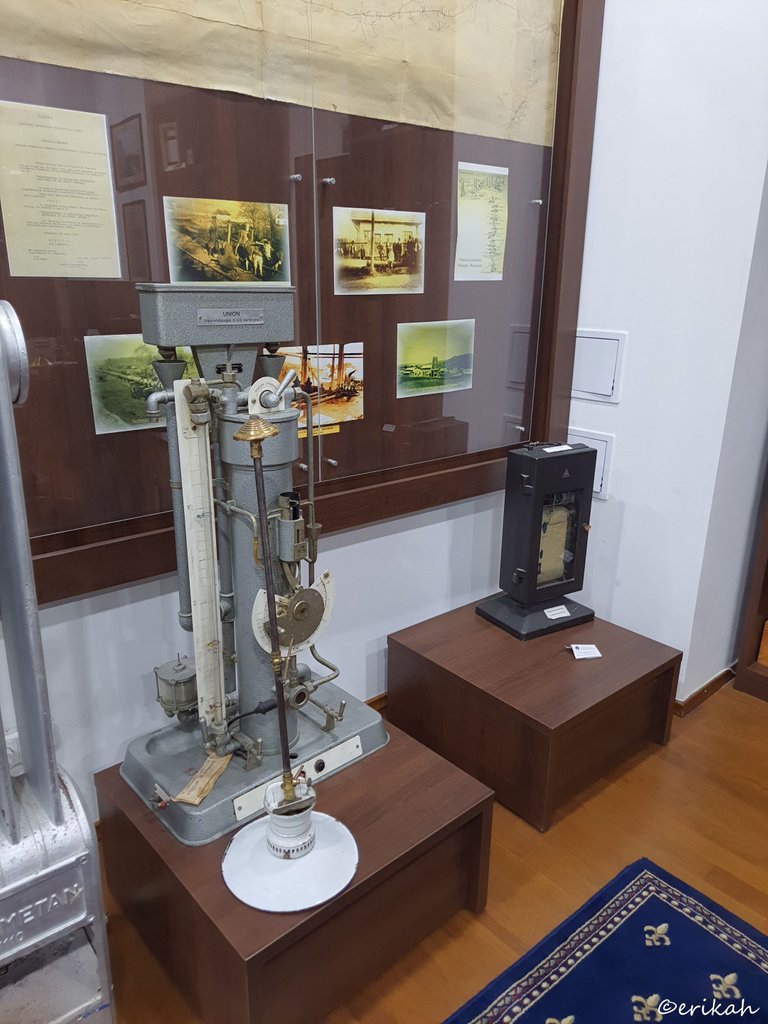
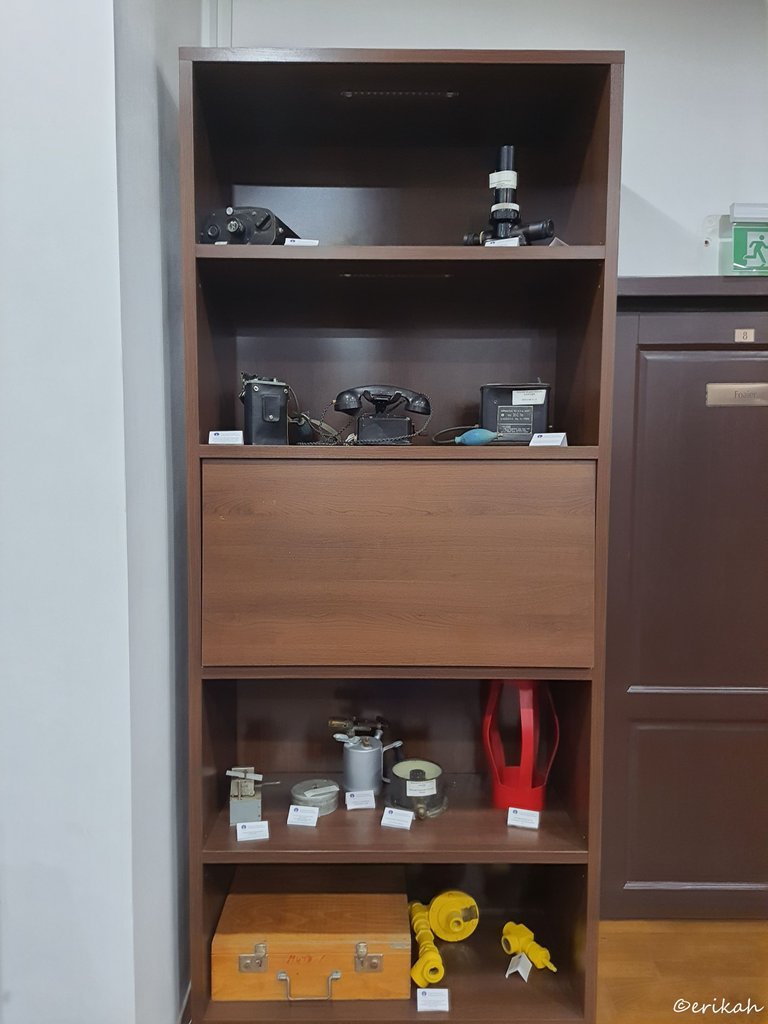
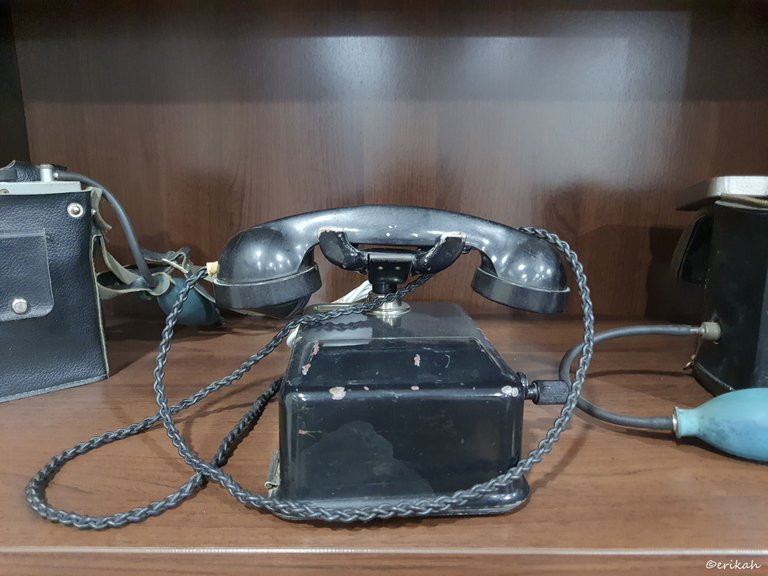
Have you ever seen such a phone? 😂 I have. I actually own one and mine is in a better shape. For those of you who don't know how these phones work, there's the crank, or handle at the side of the phone. You had to rotate that, which generated a signal to the phone center, where an operator took your call and connected you to the address you wanted to speak to. Now compare this process with the smartphone or video calls we can initiate all over the world, anytime we want, on our own.
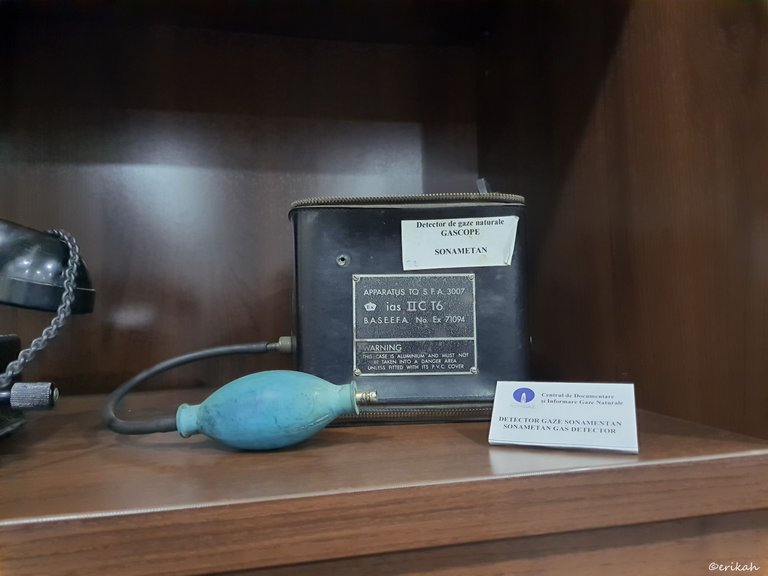
Sonametan gas detector.
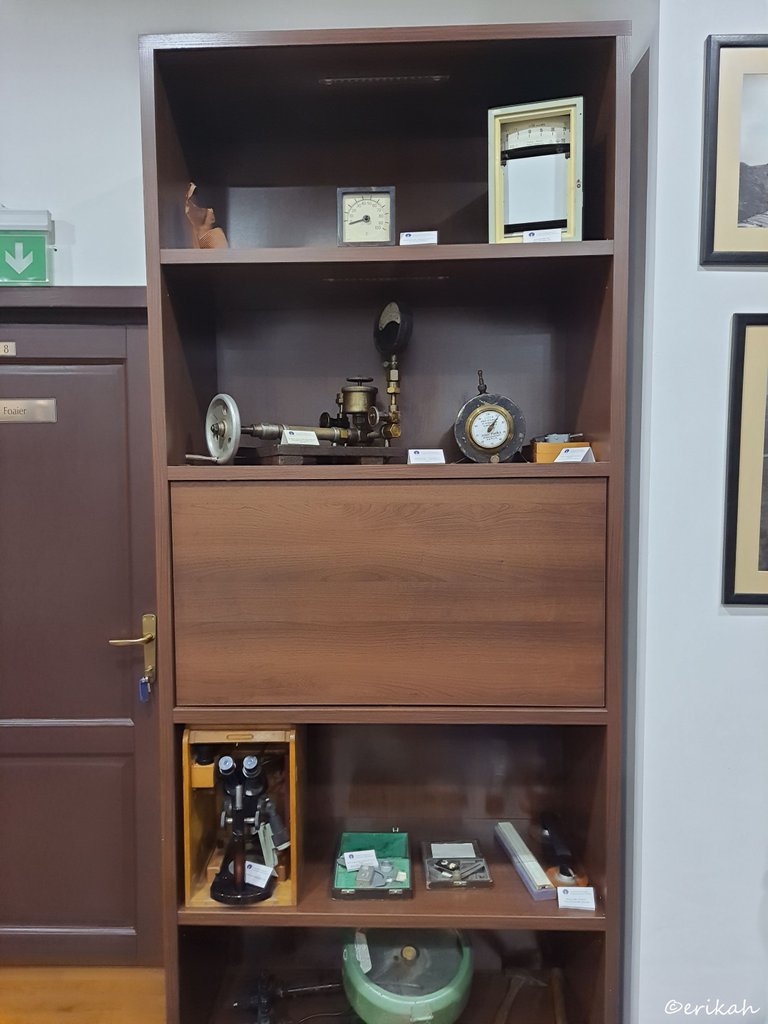
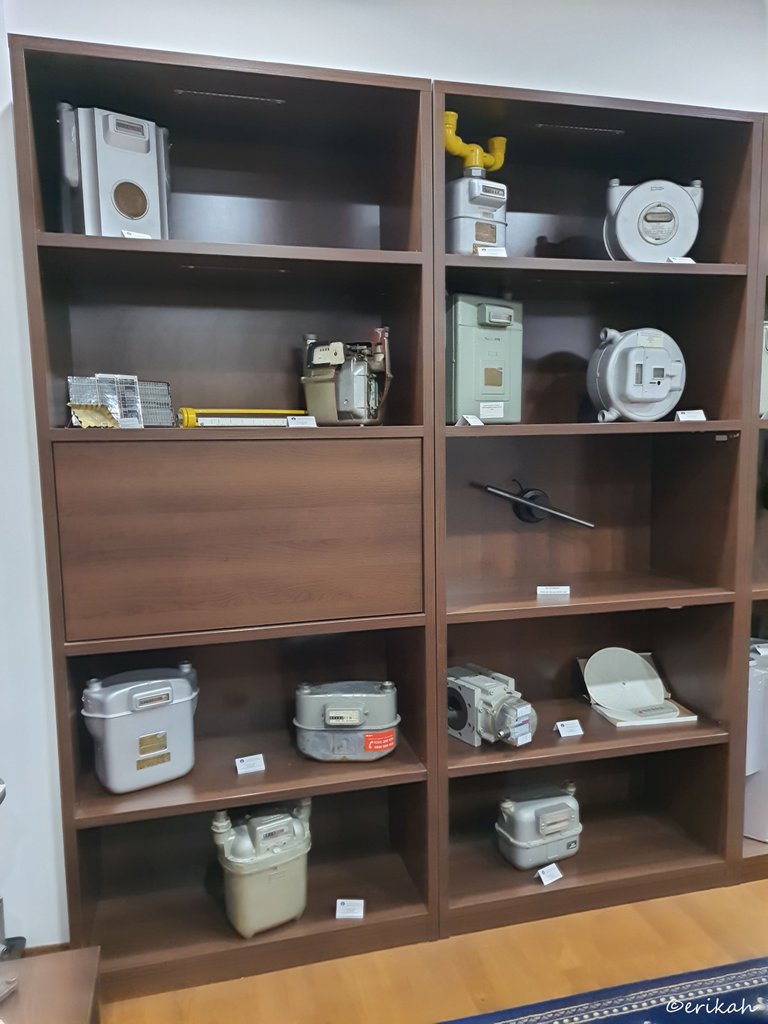
All kinds of gas meters, not in use anymore as we have the modern ones today.
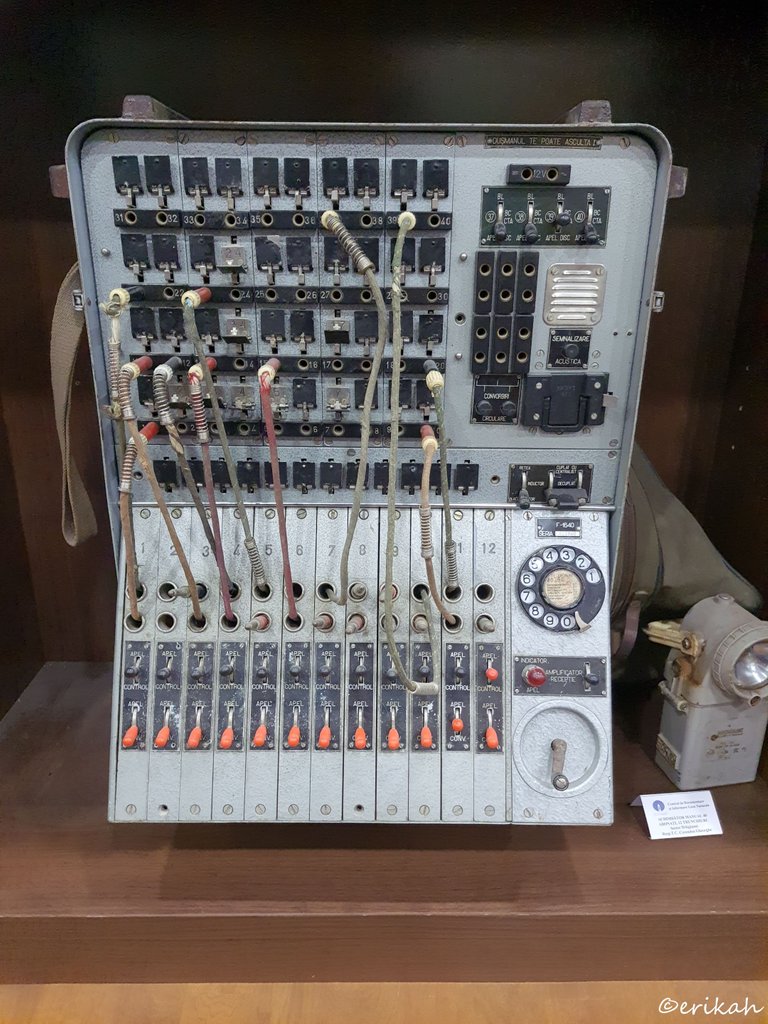
Manual switch, serving 40 subscribers. I can only guess, but most likely there was a person handling this switch. 🤦♀ I don't even want to imagine.
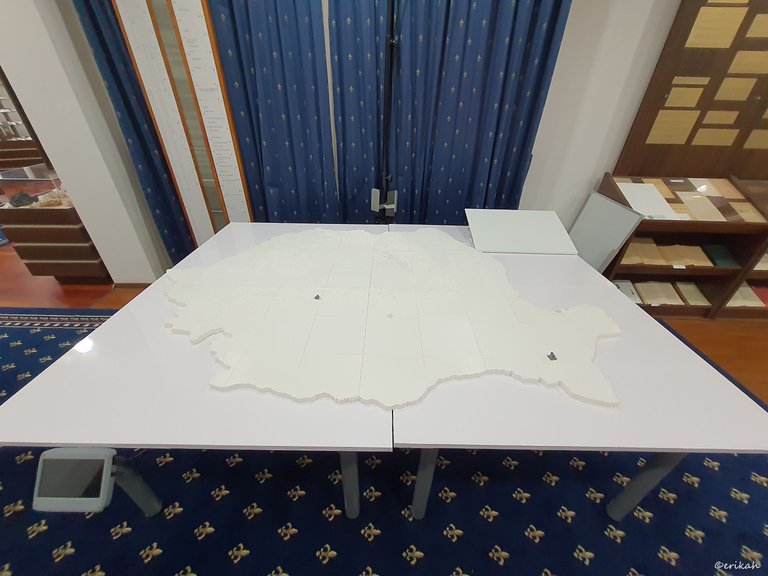
This was a very cool thing. A white map of the country, with the Carpathian mountains standing out as it was a 3D map.
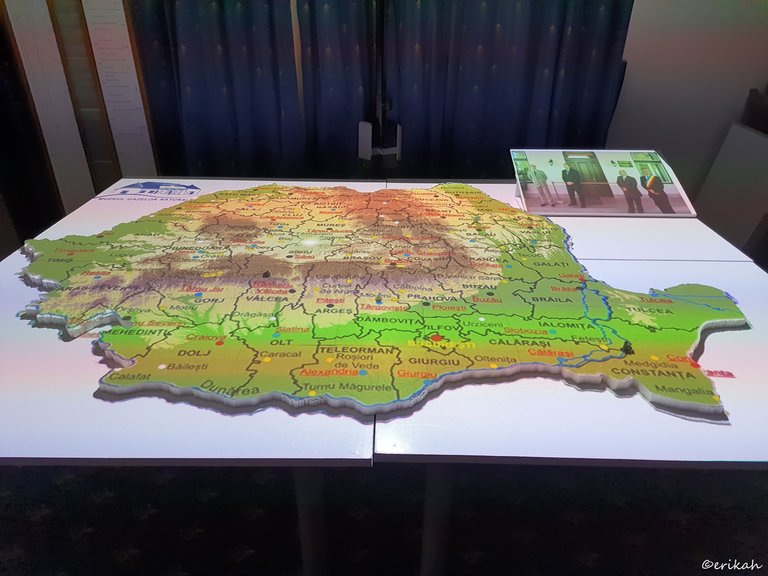
Then the projector above projected the colorful map on the 3D support and there were several videos available to watch, with the history of the museum and other topics. I really appreciated as this is how you learn.
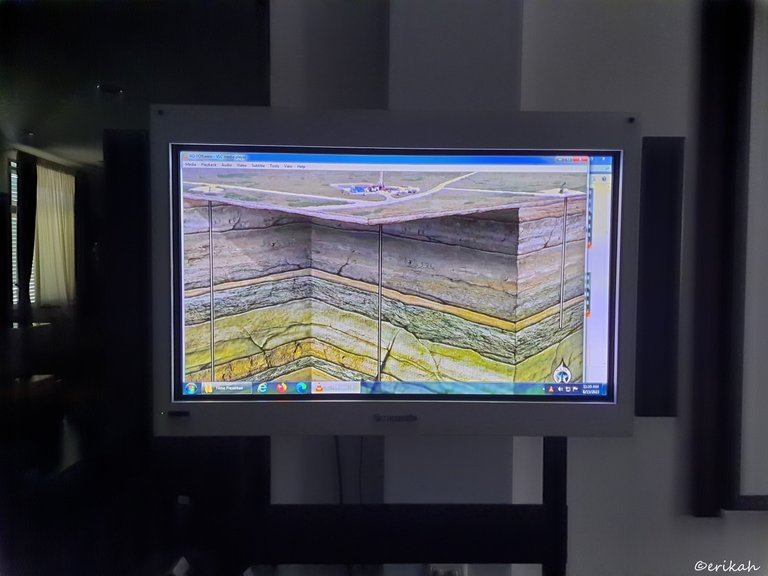
The last surprise was this video, in which the process of drilling was detailed.
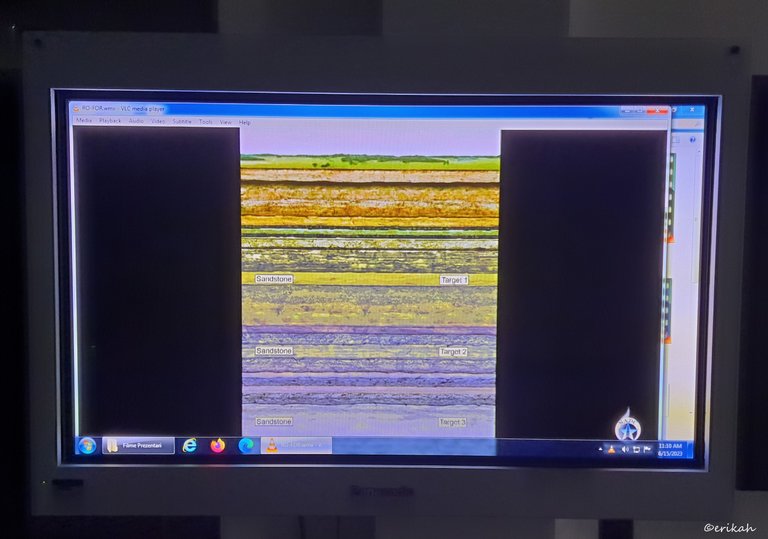
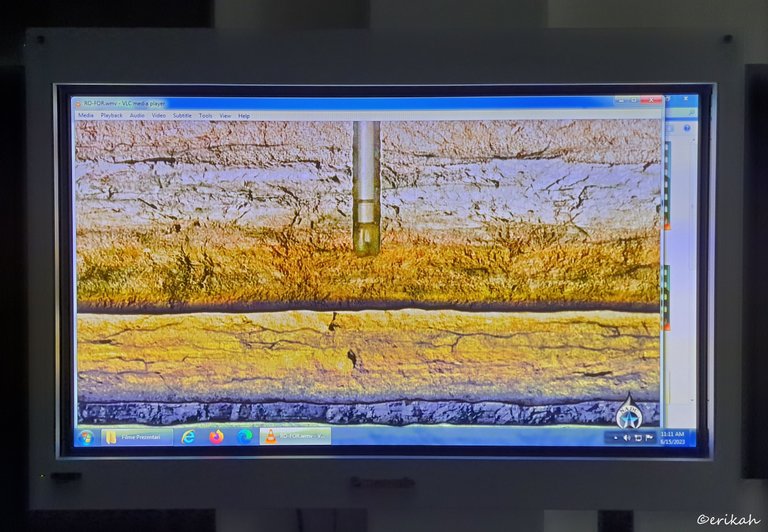
To be honest I wasn't entirely clueless as my cousin has a PhD in geology and told me once, how the drilling works, but it's one thing to be told and a totally different thing to actually see it, like this.
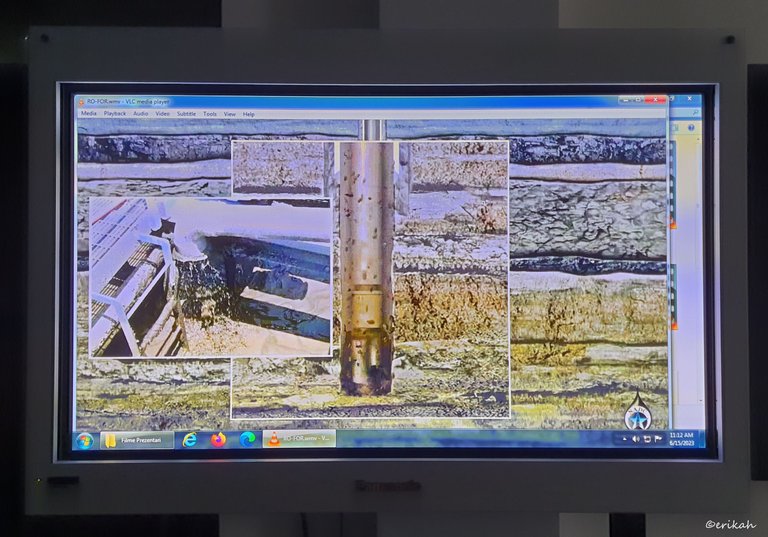
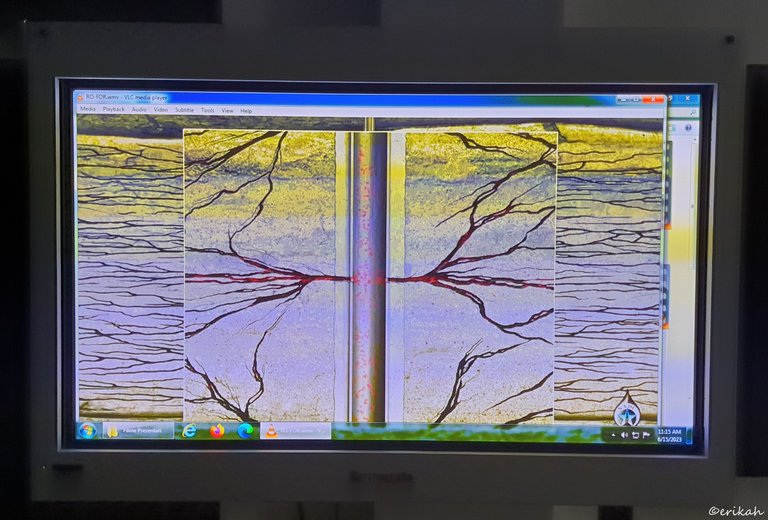
Even though these are technical things and have little or nothing to do with art, it was a very nice experience. I don't regret visiting the museum. If you're in the area, don't miss it as it's free.

If you're a newbie, you may want to check out these guides:
- Communities Explained - Newbie Guide
- Cross Posting And Reposting Explained, Using PeakD
- Hive Is Not For Me
- How To Pump Your Reputation Fast - Newbie Guide
- Tips And Tricks & Useful Hive Tools For Newbies
- More Useful Tools On Hive - Newbie Guide
- Community List And Why It Is Important To Post In The Right Community
- Witnesses And Proposals Explained - Newbie Guide
- To Stake, Or Not To Stake - Newbie Guide
- Tags And Tagging - Newbie Guide
- Newbie Expectations And Reality

Cool tour, thanks for sharing it!
My pleasure.
That was so cool. I appreciate you taking us on a tour with you of the museum. I found it very interesting. The phone and switchboard was something that really struck me as I used to work with this type of stuff years ago in the military service. You did a fine job.
Thank you @coinjoe, I'm glad you liked it. It was cool indeed. Different but cool. I was hoping someone would recognize some of the stuff I posted about and here you are 😃
Law of energy, from 1924, issued in Bucharest. This document is almost 100 years old.
how do they keep such a document for a long time, even the paper seems not dirty and still very good. not easy maintenance.
Books and paper in general must be respected, so dirty books and papers is not an option in my opinion. I can't respect people who crumple books or magazines. I have a thing for paper and it annoys me like hell, when I see such things.
Congratulations, your post has been added to Pinmapple! 🎉🥳🍍
Did you know you have your own profile map?
And every post has their own map too!
Want to have your post on the map too?
Hiya, @LivingUKTaiwan here, just swinging by to let you know that this post made it into our Honorable Mentions in Daily Travel Digest #1913.
Your post has been manually curated by the @pinmapple team. If you like what we're doing, please drop by to check out all the rest of today's great posts and consider supporting other authors like yourself and us so we can keep the project going!
Become part of our travel community:
Thank you!